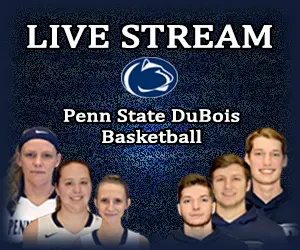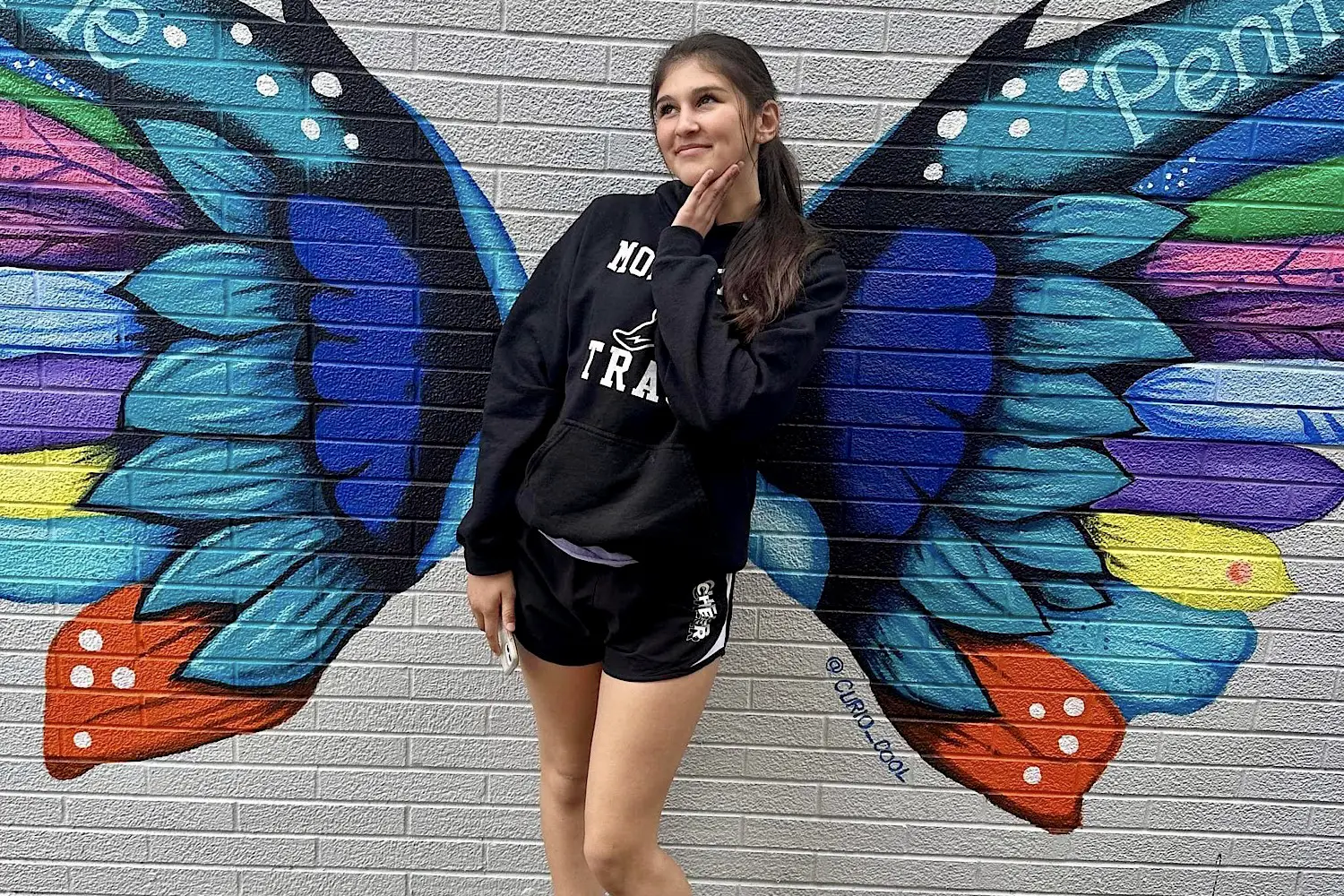
EMLENTON, Pa. (EYT/D9) — Bella Hernandez wasn’t sure what was happening. It was as if her soul was being ripped from her body, her essence blinking out of existence.
A relentless ringing in her ears. Everything around her spins as if the Earth were knocked off its axis. Vision blurs, then nothing — blackness. Legs wobble. Heart hammers wildly in her chest.
She’s on the gym floor. Unable to move. Breathing heavy. Eyes twitching. Body seizing.
Her head lies on the lap of a Moniteau High School friend and teammate until the scary episode passes.
And it is over as quickly as it begins.
EPISODE ONE
June of 2022 was the first time Bella Hernandez, an athletic and outgoing teenager from Emlenton, inexplicably lost consciousness for the first time.
Then it happened again. And again. The frequency increased to sometimes once per day.
(Pictured above, Moniteau junior Bella Hernandez has always been athletic and active, but a rare condition that causes her to suddenly lose consciousness has taken a toll on her life/submitted photos)
The “episodes,” as she calls them, seemed to happen when she was exerting herself, or when her body got too hot or too cold. It wouldn’t always happen the same way, either. Sometimes she would have a warning sign. Sometimes none.
One minute she’s striking a volleyball. The next, she’s flat on her back, staring at the gym ceiling.
“It’s been a very difficult journey,” Hernandez said. “Many doctors. Many tests to find out what is wrong with me.”
And few answers.
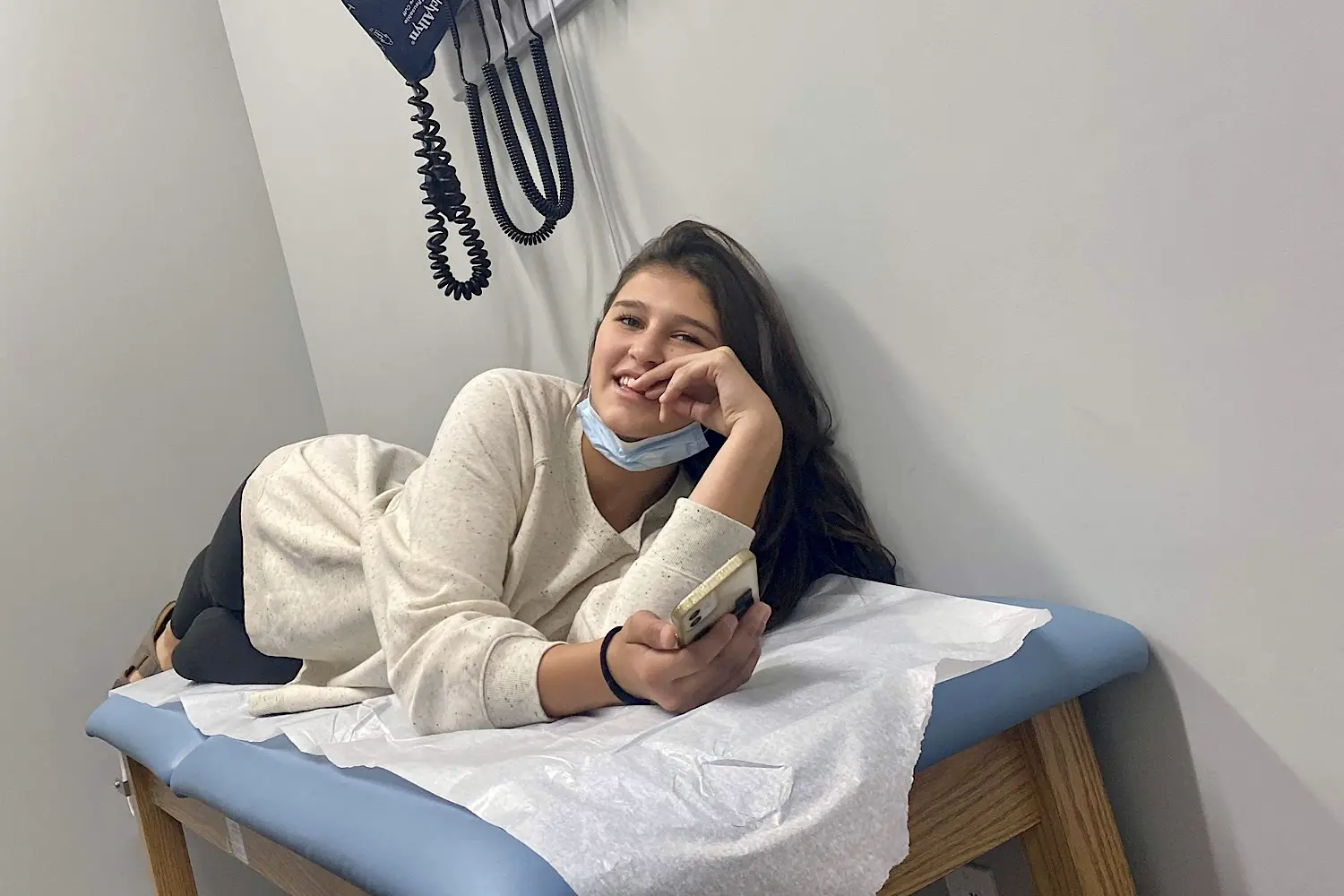
(Bella Hernandez waits for one of the many tests she had to undergo to diagnose her condition)
If there was a test, Hernandez underwent it.
EEG. EKG. MRI. Other procedures with other letters of the alphabet. Overnight studies.
All to reach a vague diagnosis.
Vascovagel syncope.
It’s the name given to a condition that has a doctor flummoxed. It’s more of a general explanation than diagnosis. It’s what doctors call it when someone passes out and they aren’t sure why.
It’s also sometimes called neurocardiogenic syncope — it occurs when you faint because your body overreacts to certain triggers, like the sight of blood or emotional distress.
It didn’t really fit Hernandez’s wide-ranging symptoms.
But it did beat one of the diagnoses.
“They said it was in my head,” Hernandez said.
She knew better. So did her mother, Kelly Kohlmeyer.
A HEAVY TOLL
Eventually, Hernandez received a more specific diagnosis of dysautonomia, which is a disorder of the autonomic nervous system — which controls things that happen without thinking like breathing. It usually involves a failure in the sympathetic and parasympathetic parts of the autonomic nervous system.
Put simply, Hernandez body sometimes just shuts itself down, like a breaker tripped when a circuit overloads.
“This can start whenever you are going through puberty, from age 10 through 15,” Hernandez said. “Normal bodies are able to calm down after going through so much activity or stress or whatever, but my body can’t calm itself down and I pass out. It’s my body’s way of calming down: to completely shut off.”
The rare condition has taken a heavy toll on her life.
Since Hernandez was five, she has been athletic and active. She’s been a cheerleader, a volleyball player and a track athlete. She tackled each of those activities with unbridled joy and competitiveness.
Now she can no longer compete with the competitive spirit team at Moniteau, a program that perennially chases District 9 and state championships.
She can no longer run events on the track, either, the risk of her losing consciousness during a race too great.
She can’t drive a car. She is limited in many other things, as well, for fear of triggering an episode.
“I was an athlete. I was able to do some things and now I’m not able to do anything,” Hernandez said. “I’m not able to be involved in much, in too much activity. It’s tough mentally and physically. I keep fighting to play volleyball because I love the sport so, so much.”
Volleyball has become her sanctuary.
It’s the one sport she can nurse her body through.
PEDIALYTE AND SALT
Hernandez has learned to spot the warning signs of an episode so she can take a step back.
Her teammates have also learned to identify problems brewing on the horizon.
“I’m so grateful for my teammates and my coaches,” she said. “To be honest, I try to hold it off because I want to be able to do the job. I want to able to do everything that everybody else does. My teammates are able to catch on when I’m not myself. They ask me if I’m OK and they get me drinks all the time.”
Hernandez has discovered that staying hydrated helps. So does salt packets — her volleyball coach, Kaitlyn Loos, and Moniteau athletic trainer, Katie Epler, always have plenty on hand.
Hernandez can often be seen between games chugging Pedialyte and tossing back mouthfuls of salt.
That’s because medication doesn’t help. There is no cure.
But there is a chance Hernandez will outgrow of the condition in her mid- to late-20s.
“There’s a 50-50 chance,” she said.
Hernandez has learned to accept those odds.
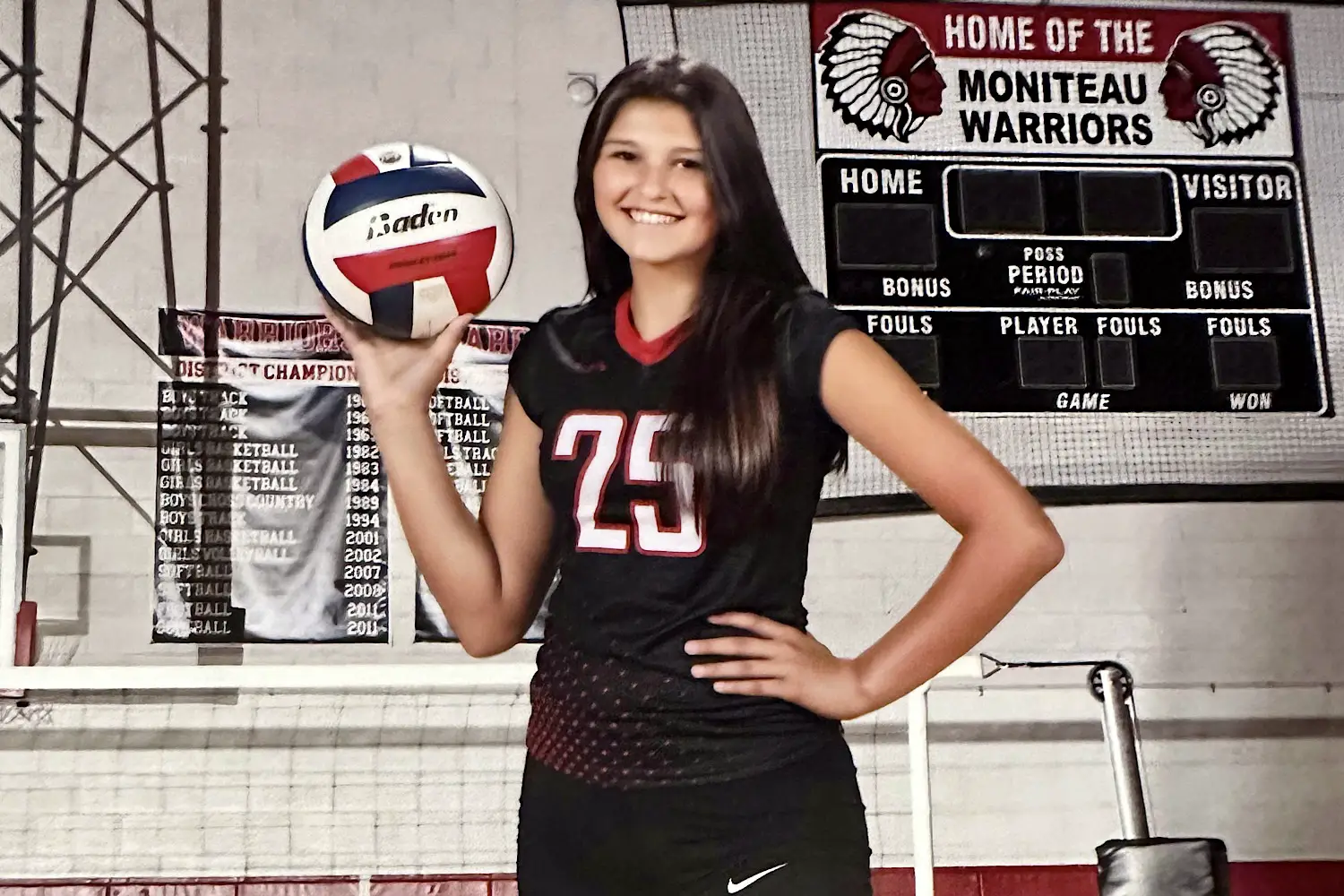
(Volleyball has become a sanctuary for Bella Hernandez as she deals with her rare condition)
But Kohlmeyer isn’t completely convinced her daughter has received the right diagnosis.
She thinks Hernandez’s symptoms fit POTS (postural orthostatic tachycardia syndrome) better. It’s one of a group of disorders in which an excessively reduced volume of blood returns to the heart after a sudden change in movement.
Like while playing volleyball. Like while running a race on a track on a hot day. Like tumbling while leading a cheer.
Kohlmeyer is trying to get her daughter seen by doctors at the Cleveland Clinic, but the first available appointment isn’t until June of 2024.
Until then, all Hernandez can do is deal with her bouts of unconsciousness the best she can.
And it breaks Kohlmeyer’s heart.
“It’s very sad actually,” Kohlmeyer said. “She has struggled with it a lot. Her athletic trainer has been phenomenal. Katie Epler — she’s been amazing. Her coaches have been amazing. Her teammates have been amazing. Everybody knows when Bella goes down, they sit with her and she rests her head on them.
“She can’t do competitive cheer anymore. She did competitive cheer for years and years and she no longer can, and she can’t even get a driver’s license at this point. She’s trying her best. The thing that makes her happy is playing volleyball.”
‘PEOPLE SHOULD CARE ABOUT THINGS A LOT MORE …’
Hernandez embraces the little things in life. She focuses on what she can do and not so much on the things she cannot.
She appreciates even the tiniest of things. She cares. A lot.
“The biggest thing with this is to be able to mentally and physically handle it,” Hernandez said. “With this, you’re not able to do so many things. It’s just crazy how much I care about stuff now. I care about every little thing. I care until I can’t care any more.
“People don’t care enough,” she added. “People should care about things a lot more than they do because they never know when they will lose it.”
Hernandez knows that more than most.
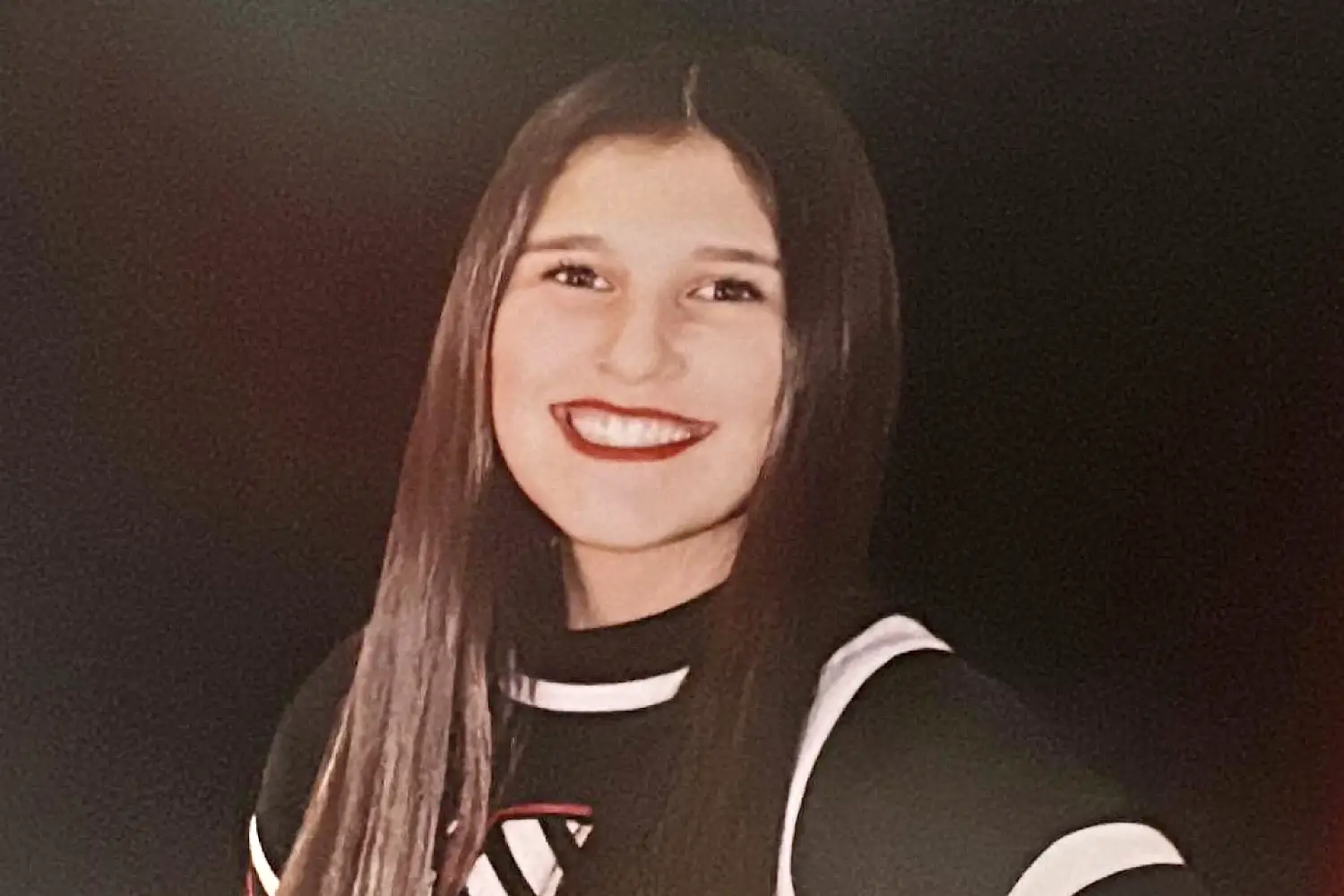
(Bella Hernandez is no longer able to do routines with the Moniteau competitive spirit team because of her condition)
It’s another of the things she considers a positive through this experience that would crush most 16-year-olds. It’s made her see things so much clearer.
She knows herself. She knows her mind. Her body. And she listens intently when both speak.
“To be honest, it’s just like a learning path. You just don’t know,” she said. “One day I could not have a very good day and another day I could have one of my best days. It just depends on how I take care of my body. But I have a whole bunch of people supporting me. My family. Teammates. Coaches.”
FIGHTING, ALWAYS
Her episodes are less frequent now, in part because she has learned so well to recognize the signs and also because she has learned what works — and what doesn’t — when taking care of herself.
This summer she is embarking on a bold move to increase her endurance with the hopes of lessoning the frequency of the episodes even more.
She jogs, making sure not to overdo it.
“I have over the summer tried to work my tolerance up for activity,” she said. “My doctor thinks if I work on my endurance enough, then my body will be able to do more and not pass out. So this whole summer I’ve mostly been running, trying to build my tolerance. I’m doing it slowly. Hydrating so much. It’s insane how much water I have to drink.”
Hernandez, who will be a junior this fall at Moniteau, has also become well-versed on her condition.
She knows more medical terms than anyone her age should.
When it first hit her, she spent a lot of time on the internet doing research.
“Like every single day for 24 hours,” she said, chuckling. “If you went through my search history, you’d see. Just to see what works for other people. What helps for other people.”
She has made many friends online who suffer the same symptoms. She and her mother are also trying to get Hernandez a service dog, which can give her an even more advanced warning of an impending episode and be with her to comfort her during one.
“It’s super cool,” Hernandez said, “but super expensive.”
While most have been supportive, some have not.
High school can be a cruel place and Hernandez has unfortunately seen that firsthand.
“To be honest, I get bullied for it,” she said. “A lot of people have said things, awful things. People have said I need to be homeschooled, that I shouldn’t be playing sports. I just want to be able to live life and be able to do the things that I love.”
The early days of her condition were the most difficult.
Hernandez admits she wanted to give up.
Now, though, she is doing what she has always done throughout her life.
She’s fighting.
“I struggled a lot mentally. I didn’t want to do anything. I thought my life was over,” Hernandez said. “But I took a minute and I was able to get myself back to where I could think about the things in my life that were positive and not negative things. I can still play volleyball. I can still do so many things. I could be in a way worse situation than what I am now. So I’m just grateful for all of it.”










